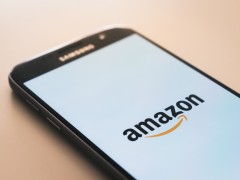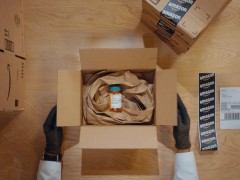Are there risks of buyers’ privacy being leaked on TikTok?
抖音是一个流行的社交媒体平台,用户可以分享短视频和互动。然而,抖音上存在泄漏买家隐私的风险。例如,用户可能在视频中展示他们的个人信息、住址或购买的商品,这些信息可能被不法分子利用。
此外,抖音的算法可能会收集用户的个人数据,用于广告定向或其他商业目的。
因此,用户在使用抖音时应注意保护自己的隐私,避免在视频中透露敏感信息,并定期检查和更新隐私设置。
Professional answer
TikTok is a popular social media platform where users can share short videos and interact. However, there is a risk of buyers’ privacy being leaked on TikTok. For example, users may show their personal information, address, or purchased items in videos, which could be used by criminals.
In addition, TikTok’s algorithm may collect users’ personal data for ad targeting or other commercial purposes.
Therefore, users should be careful to protect their privacy when using TikTok, avoid revealing sensitive information in videos, and regularly check and update privacy settings.
Douyin itself will not leak user privacy, but there may be risks of privacy leakage during operation. For example, Douyin may collect users' personal information, such as user name, delivery address, phone number, etc., which may be used for advertising promotion, business development, service sales, etc., and there may also be risks of leakage.
Yes, there is a risk of leaking buyers' privacy on Douyin. Some sellers may collect buyers' personal information and use it for unauthorized purposes, such as advertising push, personal information trafficking, etc. In addition, some users may share content involving personal privacy on Douyin, such as home address, contact information, etc., further increasing the risk of privacy leakage. Therefore, users should be cautious in protecting their personal privacy when using Douyin, do not provide personal information at will, and pay attention to setting the privacy permissions of their accounts.
Normally, Douyin will not leak buyers' privacy.
If personal information is leaked, there are three ways to protect rights:
1. When citizens find that their personal information has been leaked, they can ask the network service provider or the infringer to delete their leaked private information;
2. They can report to the relevant law enforcement departments, local public security organs, consumer associations or departments that manage the Internet;
3. They can use legal weapons to protect their legitimate rights and interests, and if necessary, ask the infringer to compensate for the losses or apologize.
Similar Q&A
recommend How to use Starbucks Douyin group purchase coupons?
E-c News Continuously pushing e-commerce knowledge to you








Latest Q&A More
-
Do I need a trademark to open a franchise store on Pinduoduo to sell books?
#Pinduoduo#
-
How to withdraw from a Pinduoduo store
#Pinduoduo#
-
How to withdraw from Pinduoduo merchants
#Pinduoduo#
-
How to pay fees when closing a Pinduoduo store
#Pinduoduo#
-
How to withdraw from Pinduoduo
#Pinduoduo#
-
Which store on Pinduoduo is authentic?
#Pinduoduo#
-
Which stores on Pinduoduo can buy genuine products?
#Pinduoduo#
-
How to check the store under Pinduoduo
#Pinduoduo#
-
How to receive Pinduoduo online game products
#Pinduoduo#
-
How to sell the electronic version on Pinduoduo
#Pinduoduo#
E-c News 2025-09-22 23:02:10

- African netizens use China Africa cross-border e-commerce platform for online shopping
- how is the new seller of cross-border e-commerce doing?
- how can cross-border e-commerce Amazon sell on Amazon platform without goods?
- Amazon store opening process and cost analysis!
- Amazon plans to expand its pharmacy business on a large scale and will add same day delivery service


